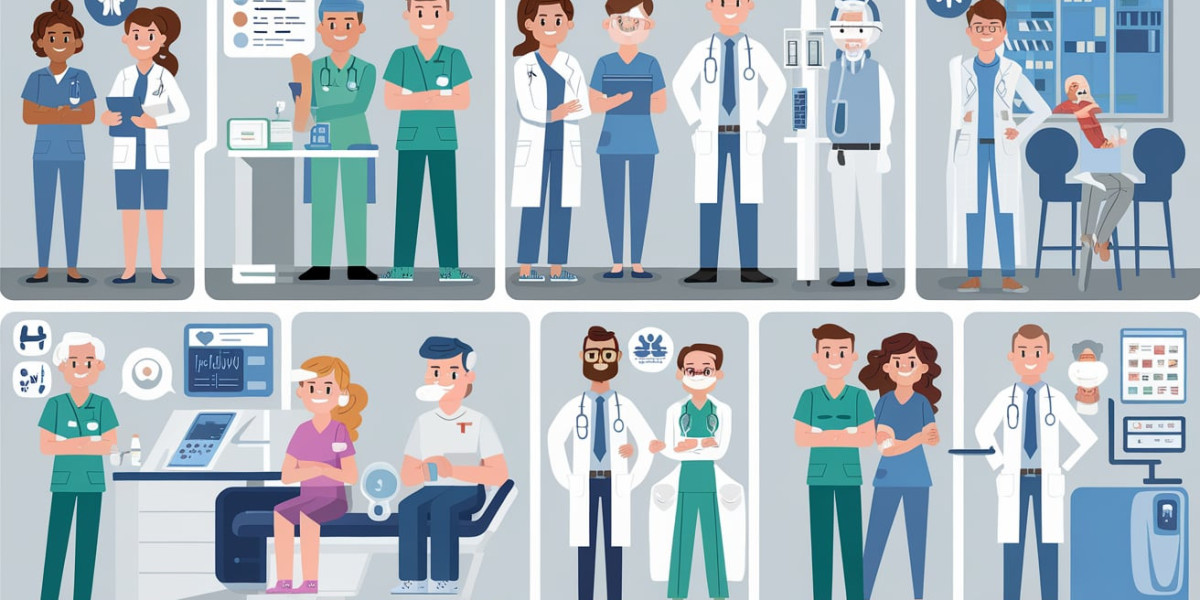Medical professionals are the backbone of every healthcare system. They are the individuals who diagnose illnesses, deliver treatments, provide ongoing care, support patient recovery, and help prevent disease across communities. Their contribution extends far beyond clinical duties; they play vital roles in education, research, public health, administration, and system improvement. Without medical professionals, healthcare systems would not function, and communities would lose the foundation needed to maintain wellness and respond to disease.
Direct Patient Care and Clinical Expertise
Diagnosing and Treating Illnesses
One of the primary contributions medical professionals make is providing direct clinical care to patients. Doctors, nurses, allied health workers, and specialists use their extensive training and clinical knowledge to diagnose conditions, develop treatment plans, and manage complex medical cases. Without accurate diagnosis and timely treatment, patient conditions could worsen and lead to severe complications.
These professionals apply scientific knowledge, critical thinking, and experience to evaluate symptoms, interpret test results, and recommend appropriate interventions. Their expertise ensures that patients receive the right treatment at the right time.
Delivering Personalised and Compassionate Care
Beyond technical skill, medical professionals provide personalised and compassionate care. They understand that each patient has unique needs, concerns, and preferences. Whether supporting a patient through surgery, managing chronic illness, or providing palliative care, medical professionals offer emotional support, reassurance, and education. This human connection is vital for patient recovery and overall well-being.
Maintaining Patient Safety and High Standards of Care
Implementing Evidence-Based Practice
Medical professionals follow evidence-based guidelines to ensure that all treatments and procedures meet the highest standards of safety and effectiveness. By keeping up to date with the latest medical research, clinical trials, and protocols, they help reduce risks and improve outcomes.
Monitoring and Preventing Medical Errors
Patient safety is central to healthcare delivery. Medical professionals continuously monitor patient conditions, identify risks, and take action to prevent complications. Nurses conduct regular assessments, pharmacists review medication interactions, and doctors adjust treatment plans as needed. Their vigilance helps prevent medical errors and protect patients from harm.
Promoting Health and Preventing Disease
Educating Patients and Communities
Medical professionals contribute to public health by educating individuals and communities about healthy lifestyles, preventive screenings, and disease management. Their guidance helps people understand how to avoid illness, manage chronic conditions, and adopt healthier habits.
Supporting Vaccination and Disease Prevention Programs
Doctors, nurses, and public health workers play a central role in administering vaccines, conducting health screenings, and promoting preventive care programs. These initiatives help control disease outbreaks, reduce the burden on hospitals, and protect vulnerable populations.
Supporting Hospital Operations and System Functionality
Collaborating Across Multidisciplinary Teams
Modern healthcare relies heavily on teamwork. Medical professionals collaborate with colleagues from various specialties—including surgeons, physiotherapists, pharmacists, dietitians, social workers, and administrative staff—to deliver comprehensive care. Effective teamwork ensures that all aspects of a patient’s health are considered, resulting in better outcomes and a more coordinated healthcare experience.
Managing Workflows and Resource Allocation
Many medical professionals also contribute to hospital operations by helping manage patient admissions, coordinate treatment plans, and streamline workflows. Senior nurses, physicians, and administrators often make decisions about resource allocation, staffing levels, and patient flow to keep healthcare systems functioning smoothly.
Contributing to Medical Research and Innovation
Advancing Medical Knowledge
Medical professionals play a fundamental role in medical research and innovation. Doctors and scientists conduct clinical trials, study disease mechanisms, and develop new treatments and technologies. Their research has led to breakthroughs in surgery, pharmaceuticals, diagnostics, and preventive care.
Improving Treatment Techniques and Clinical Practices
By participating in research and staying informed about global medical developments, medical professionals help introduce new treatment methods, refine clinical guidelines, and enhance the overall quality of healthcare. This continuous improvement drives progress within the healthcare system and benefits patients for generations.
Leadership, Education, and Professional Development
Training the Next Generation of Healthcare Workers
Medical professionals are responsible for educating and mentoring students, interns, and new practitioners. Whether teaching in universities, supervising clinical placements, or offering on-the-job training, they ensure that future healthcare workers are competent, confident, and prepared for real-world challenges.
Leading Healthcare Teams and Policy Development
Experienced medical professionals often take on leadership roles within hospitals, clinics, and public health agencies. They contribute to the development of healthcare policies, guidelines, and standards. Their leadership helps shape the direction of healthcare delivery and improves the structure of the entire system.
Responding to Emergencies and Public Health Crises
Providing Frontline Support During Crises
During emergencies such as pandemics, natural disasters, and large-scale accidents, medical professionals are the first responders who stabilise patients, manage critical conditions, and coordinate emergency services. Their expertise and rapid decision-making save lives.
Managing Public Health Response
Medical professionals also help design and implement response strategies for disease outbreaks, vaccination campaigns, and community health protection. Their involvement ensures that public health measures are both effective and scientifically sound.
Improving Overall Healthcare Outcomes
Enhancing Quality of Life
Through diagnosis, treatment, prevention, and ongoing care, medical professionals significantly improve the quality of life for individuals and communities. Their work reduces suffering, promotes recovery, and helps people live longer and healthier lives.
Building a Strong and Sustainable Health System
By maintaining high standards, supporting operations, educating new professionals, and advancing medical science, medical professionals ensure that healthcare systems remain strong, reliable, and capable of meeting the needs of the population.
Conclusion
Medical professionals are indispensable to the healthcare system. Their contributions extend across clinical care, public health, research, education, leadership, and emergency response. They are the foundation upon which safe, effective, and compassionate healthcare is built. Without their expertise and dedication, healthcare systems would fail to meet the needs of communities and could not respond to the growing challenges of modern medicine.






